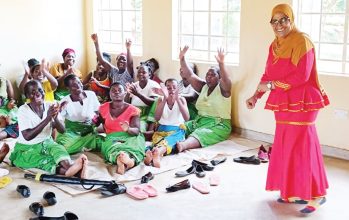Foreigners stuff Malawi prisons
While authorities are struggling to decongest the country’s prisons, the population of foreigners is steadily rising thereby creating feeding challenges as well as drawing security attention.
As of July 28 2023, the country’s prisons were accommodating 693 foreign nationals, comprising 631 remandees and 62 convicts.
This composition of foreign detainees and inmates in the country’s prisons, according to Deputy Commissioner of Malawi Prisons Service (MPS) responsible for service operations and legal affairs Bazirial Chapuwala, is equivalent to three medium security prison facilities.
In a written response, Chapuwala said Ethiopian nationals top the list with 385 housed in the Northern Region prisons, the Central Region facilities have 76 while the Southern and Eastern regions have 14 and eight, respectively.
He disclosed that the common offence for Ethiopians is illegal entry into the country while most Mozambicans it is burglary and theft while those from other countries “were generally convicted of drug trafficking and fraudulent acts cases”.
Disclosed Chapuwala: “The probable trend in the past five years is pegged at 72 percent increase especially immigrants from Ethiopia.”

From our investigations, we established that the number of foreign nationals is also increasing because they are remanded for several months while those who served their jail terms are still stuck in the facilities as they await repatriation to their countries.
The deputy commissioner disclosed that the increase was creating feeding challenges as most of the foreigners do not eat local foods like nsima.
“These foreigners are not deployed to prison gangs because most of them are on remand, and those who were sentenced are a flight risk. As a result, they just utilize prison resources and amenities without contributing anything because we cannot engage them in prisoners’ labour activities,” explained Chapuwala.
He also said the foreigners draw prison’s security attention as officers focus their attention on them under their custody more than the local inmates.
He also cited the Immigration Act’s unresponsiveness to contemporary emerging trans-boundary and cross-border migration of people.
Chapuwala said: “Section 10 (2) (a) of the Immigration Act requires that every person who is declared a prohibited immigrant must pay own cost for repatriation to their country of origin. Unfortunately, this is problematic.
“[But] how do we expect someone who was travelling on foot using uncharted routes to find airfare costs for repatriation to his home country? This has led to an inordinate delay and overstay on remand without being repatriated to their home country.”
According to Chapuwala, Chakwera has pardoned a total of 8 484 prisoners since ascending to power 0n June 23 2020.
“To pardon 8 484 prisoners in three years is very unprecedented in the history of the Malawi Prisons Service. If the prison system was admission-closed, meaning if it were not receiving new admissions into its facilities, the actual population would have been close to the design capacity of the prisons.
“But this is not the case now because more people got arrested, sentenced and committed to our prisons thereby erasing the gains made as a result of Presidential pardons.”
As of 2021, the revised design capacity for all the 31 correctional facilities across the country was 7 322 and the highest prison population registered so far was 17 648 in 2022.
However, prison population has been reduced to around 13 500, as of the 2023 Independence Day, following President Lazarus Chakwera’s pardons.
In November last year, 30 bodies of Ethiopians were discovered in a mass grave in a forest in Mzimba, a development that sparked concerns of a migration crisis.
Homeland Security spokesperson Patrick Botha admitted the challenges but said government would not be moved to set free convicts after serving their sentences because they are not supposed to be in Malawi.
Centre for Human Rights Education, Advice and Assistance (Chreaa) executive director Victor Mhango observed that government was spending a lot of money in arresting foreign nationals and putting them in prisons.
He also blamed the situation on lack of immigration holding centres that could accommodate irregular migrants that are waiting for deportation.
“This has resulted in putting pressure on the prisons and overcrowding them. It is high time we reviewed the Immigration Act to address the human rights issues that arise from the unlawful detentions of irregular migrants. It is unlawful to hold people in detention for an indefinite period,” stated Mhango.





